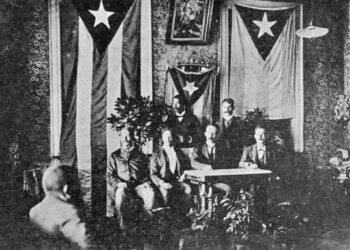Enrique Peña Nieto will travel to Washington D.C. to discuss several matters with Barack Obama. On his agenda are the slaughter of Ayotzinapa, the immigration problem and Cuba. The name of the Caribbean island sneaked in his priorities after December 17.
The president of Mexico was very interested in changing the relations of its neighbors. He phoned his Cuban counterpart Raul Castro one day after he announced his diplomatic agreement with US Barack Obama.
The reason? Mexico has been for fifty years amid enmity between Havana and the northern nation. Key issues such as determining the maritime borders between the three countries in the Gulf of Mexico were stalled by lack of dialogue.
The Mexican president did not intend to include the item Cuba during his visit to the White House as a diplomat confessed to the newspaper El Universal in mid-December.
Now that same official, Sergio Alcocer, undersecretary of Affairs for North America, recently admitted that “the issue of Cuba will come within the scope of the Mexican case, since Mexico is considered as a relevant and useful actor to further deepen the dialogue between the two countries and facilitating conditions for this to happen “.
It would not be the first time that Peña Nieto and Obama talk about their Caribbean neighbor. “Cuba has always been a recent topic in the United States when the two presidents reviewed the region,” confessed Alcocer in a press conference.
Another head of state who has much to gain from the restoration of relations between Havana and Washington is Dilma Rousseff. The president of Brazil informed the US Vice President Joe Biden her great satisfaction with the agreement between Castro and Obama, during a meeting between them on January 2 during the second inauguration of Rousseff.
The restoration of relations is “a historic and courageous decision” that, in the opinion of the occupant of the Planalto Palace, will have a favorable impact on Latin America.
Rousseff left without arguments those who question the investment of hundreds of millions of dollars in Mariel, a port located ninety miles from US shores.
The Brazilian bet seems logical after the determination of the US Department of Commerce to expand its “commercial diplomacy” towards Cuba; a purpose announced the same day that Barack Obama took a turn in relations with Havana.
The New York Times in an editorial called Latin American leaders to “become the main protectors of the leaders of the Cuban opposition during the Summit of the Americas in Panama”.
“President Enrique Peña Nieto of Mexico and President Dilma Rousseff of Brazil, should speak strongly in defense of democratic principles adhered to by most nations in the Americas,” the New York newspaper published in late December.
Both Mexico and Brazil are economic allies of Havana, a bond strengthened by the long relationship between the ruling Workers Party (PT) of Brazil and the Institutional Revolutionary Party (PRI) of Mexico with the Communist Party of Cuba.
Rousseff has visited Cuba twice, both times meeting with former Cuban President Fidel Castro, as did the Mexican president in January 2014, by attending the Second Summit of the Community of Latin American and Caribbean States (CELAC).
In 2013, Peña Nieto condoned the authorities in Havana a debt of $ 340 million. The Brazilian government has hired more than 11,000 Cuban doctors between 2013 and 2014, while that of Mexico advises businessmen to invest in the Caribbean nation.
In its recent communication, Raul Castro thanked his Mexican counterpart economic support for the process of updating the Cuban model and “efforts to promote greater participation by Mexican firms in his country.”










